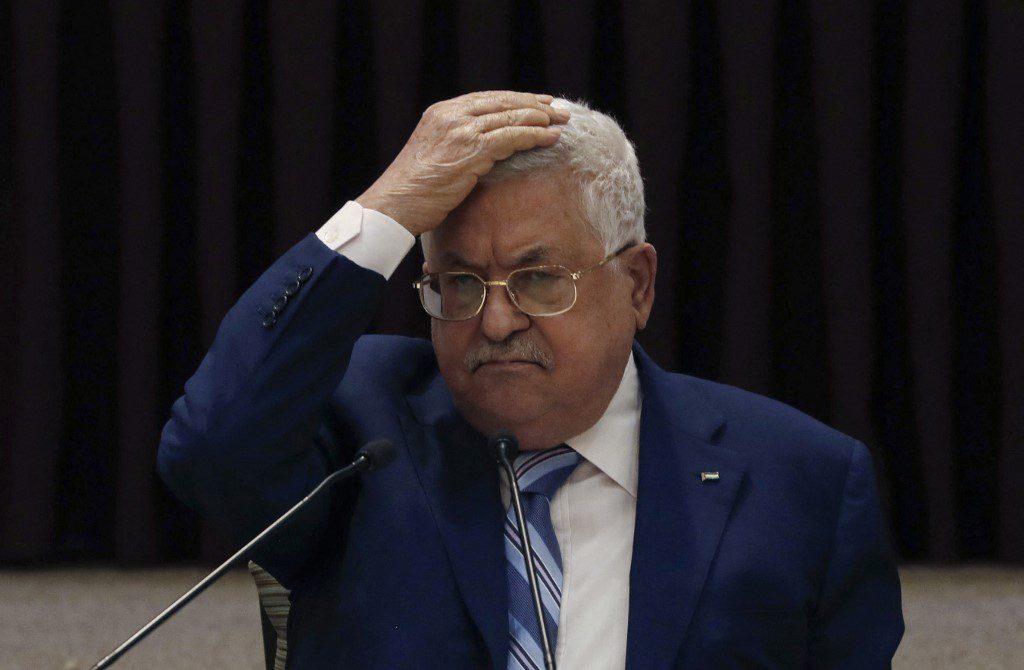
Majed Kayali
The Palestinian political system has become archaic, as the ruling class, factions, and methodologies have remained the same for decades. This has been the reality since the establishment of the Palestinian government in the West Bank and Gaza three decades ago.
The system has eroded, including all entities — the Palestine Liberation Organisation (PLO), factions, grassroots organisations and the authority. These entities have become exhausted and are no longer relevant in Palestinian society. The PLO also lost its fighting symbolism before transitioning from a liberation movement to an authority, especially considering the failure of its political and militant choices.
The problem of the Palestinian political system does not stop at obsolescence and erosion, as malfunctions and stagnation characterise it. The ruling political class has been conservative in its approach and continues to be so. Despite, for example, acknowledging that Israel blocked the Oslo Accords, it has never considered or attempted to explore other options.
This has not changed despite the General Council’s decisions, which stipulated halting security coordination with Israel, proceeding with the economic boycott, halting negotiations and exerting efforts to isolate Israel and take it to the International Court.
The failure is also represented in the monopoly on political decisions, limited participation and restricted development of the Palestinian political system. As such, the leadership class, as outdated as it is, has nothing to offer or add. This class has become a burden and an obstacle to the development of a Palestinian national movement.
One can imagine the disastrous extent of the monopoly in light of the vigour of the Palestinian community, its substantial rate of high education, and the capacities built through its decades of struggle.
The question here revolves around the legitimacy of the Executive Committee of the PLO, bearing in mind that the last sittings of the Palestine National Council date back to 1996 and 2018, with a span of 22 years between the two sittings!
It is noteworthy that the first sitting took place inside the Palestinian territories, three years after the establishment of the Palestinian Authority, in response to the American request to amend the National Charter. The request was approved with 504 votes in favour, 54 against and 12 abstentions. Amendments were, however, never made by the Palestine National Council.
Yet, the story did not end here, as the illegitimate and unrepresentative Palestinian Popular Conference amended – by a show of hands – the National Charter during a sitting in Gaza at the end of 1998. The conference was held solely for this purpose in the presence of former US President Bill Clinton.
This also indicates that the Oslo Accords (1993) did not derive their legitimacy from the PLO’s legal committee 15 years after establishing the authority.
It is known that these unfair agreements of the Oslo Accords reduced the question of Palestine to the occupied territories of 1967, divided the Palestinian people and transformed their national movement into a mere authority approved by the same legal frameworks.
Above all, these conditions raise questions about the legitimacy of the Palestinian regime, whose make-up is dictated by quotas for different factions that are practically non-existent.
We are talking about factions whose existence has no historical, theoretical or militant justification. In addition, the political class – whose members are mostly in their seventies and eighties – that controls the National Assembly and dominates Fatah and the PLO has been in power since the 1960s.
Based on the aforementioned, three conclusions can be drawn.
Firstly, the role of Palestinian entities that came into existence in the 1960s has come to an end. Their discourses, structures, frameworks and methods of resistance confirm this dynamic, which has worsened since the replacement of a liberation movement with the Palestinian Authority in the West Bank and the Gaza Strip, yet another entity utterly alien to its predecessor.
The second conclusion lies in the fact that the Palestinian leadership is not interested in adhering to the interests of its people for several reasons. Due to the imbalance of power favouring Israel, the absence of Palestinian society in a unified regional framework and since the Palestinian political class does not depend on popularity for its existence.
The third conclusion is that the Palestinians’ problem is not just related to moving forward but rather to the erosion of their entities. In addition, these entities lack institutional and militant spirit and have failed to build democratic structures and democratic patterns of communication.
Moreover, they lack accountability and are unrepresentative of those democratically elected. The existence of a ruling class with a minimum level of responsibility would have curbed a deviation from the national course. One might say that had these factors been present, they at least could have contributed to correcting the dangers of deviating from this path or could have preserved the Palestinian household.
Accordingly, all the above factors have led to a Palestinian national movement and a political system in a state of inactivity or decline. Given their differences and the tardiness of their political players, no one can predict where the Palestinians will go next.
DISCLAIMER
The opinions expressed in this publication are those of our bloggers. They do not purport to reflect the opinions or views of Fanack or its Board of Editors.


